Regardless of a renaissance of the #corset, we’ve come a good distance since royal courts and imperial tastemakers dictated the newest types in vogue.
Within the creator economic system, social media influencers set the tone for what’s scorching and what’s not. Each fashionista with a smartphone now has the potential to jumpstart the subsequent viral development with only a fast video or photograph of their outfit of the day. Partnering with the precise trendsetting creators produces a halo impact for manufacturers usually considered as vogue pioneers by affiliation. On the very least, influencer collaborations give manufacturers a superb alternative to insert themselves into the subsequent viral development.
The historical past of selling within the vogue trade
Trend sellers and arbiters of favor have at all times discovered a method to get the newest developments in entrance of keen customers. From touring dolls to augmented actuality, the style trade has by no means lacked innovation, and its evolution exhibits no indicators of slowing down.
Here’s a fast have a look at how the trade has developed over time, setting the stage for the creator economic system:
Pandoras
Starting within the sixteenth century, European courts generally relied on vogue dolls generally known as “pandoras” to find the types of the second. Retailers meticulously outfitted every pandora with the newest vogue developments, permitting patrons to get a really feel for the look earlier than choosing their new custom-made garment.
Pandoras remained en vogue for almost 4 centuries earlier than extra sensible strategies finally changed them. Nonetheless, the spirit of the Pandora doll lived on by way of trendy instances with the discharge of Barbie, Bratz dolls, and different fashion-forward toy launches.
Trend plates
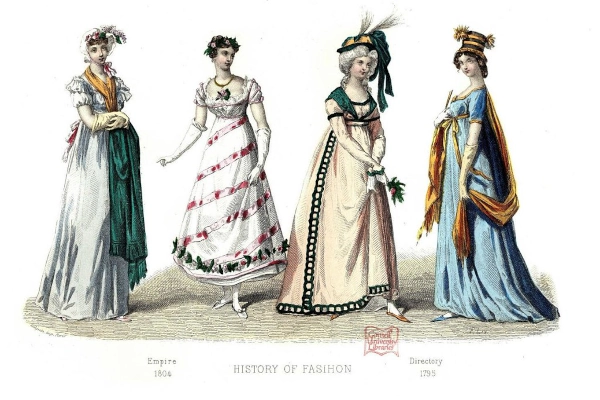

Trend plates helped introduce 18th- and Nineteenth-century girls to the now quickly altering types popping out of London and Paris. Trend plates had been made by way of etching, line engraving, or lithographs to indicate tailors and dressmakers choices for brand spanking new garments they may make or promote. In 1672, France’s Le Mercure Galant grew to become the primary publication to report on the style world and introduce the center class to rising developments by way of vogue plates. Printed within the mid-18th century, Woman’s Journal used vogue plates to spotlight its “habits of the yr” and predictions for future fashion developments.
Trend magazines
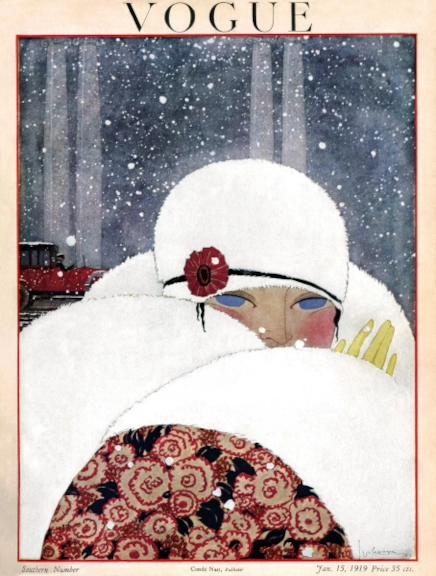

Trend magazines grew to become mainstream within the Nineteenth century. Godey’s Woman E-book (1830-1878) was some of the fashionable of its time, identified greatest for its hand-tinted vogue plates and progressive stance on girls’s points. Voguepublished its first difficulty in 1892 and set the tone for vogue magazines as we all know them at present. The provision of those publications made vogue much more accessible to the common individual and helped elevate the fashions and photographers whose work appeared in them to superstar standing.
Catalogs
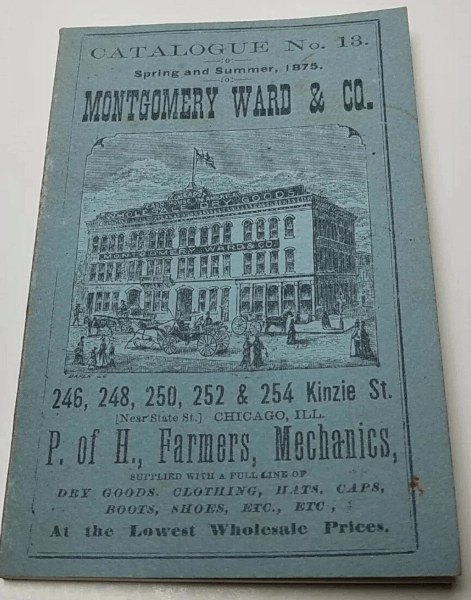

Mail order promoting took off as settlers moved west throughout the US within the late Nineteenth century. Montgomery Ward & Firm printed the primary mail-order catalog in 1872, which featured 162 merchandise on the market and directions for ordering. By 1904, the corporate’s mailing checklist included greater than 3 million clients.
Catalogs remained probably the most profitable type of “at dwelling” purchasing for greater than a century. However by the late Nineties, customers shortly shifted their consideration to the web as on-line procuring grew to become prevalent in households throughout the globe.
A brand new millennium
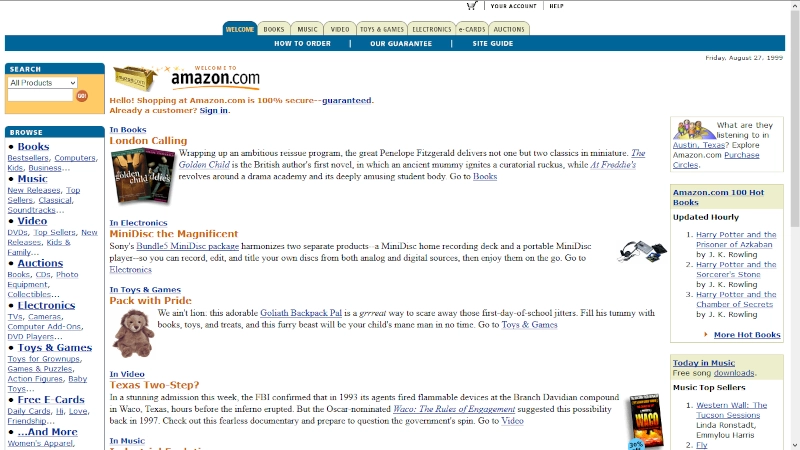

On-line procuring grew to become fashionable in 1995 when Amazon and eBay hit the scene. Nick Swinmurn launched Zappos in 1999, which vaulted on-line vogue platforms into the limelight.
What began as comfort has developed right into a dynamic ecosystem of discovery and buy. This important shift within the vogue trade, propelled by technological developments, has drastically modified client behaviors. Direct-to-consumer (DTC) manufacturers emerged, leveraging on-line platforms to construct robust buyer relationships and bypass conventional retail channels.
Because the digital panorama developed, so did the avenues by way of which customers found and bought vogue gadgets. Social media platforms grew to become highly effective instruments for model promotion and buyer engagement. Influencer advertising and marketing gained traction, with manufacturers collaborating with social media personalities to achieve wider audiences. This shift gave rise to social commerce, the place customers might buy merchandise instantly by way of social media platforms like Instagram and TikTok.
The newest evolution on this trajectory is creator commerce. On this mannequin, particular person content material creators not solely promote but additionally promote merchandise on to their audiences. Platforms like LTK (previously LIKEtoKNOW.it) empower creators to curate personalised procuring experiences, mixing content material and commerce seamlessly.
These developments underscore a broader development: the decentralization of vogue retail. Shoppers now have a number of pathways to find and buy vogue gadgets, whether or not by way of model web sites, social media platforms, or instantly from their favourite creators. This shift not solely affords customers extra selections but additionally empowers manufacturers and creators to construct extra direct and significant relationships with their audiences.
Trend trade statistics and developments within the creator economic system
The style trade continues to evolve quickly, influenced by technological developments, shifting client behaviors, and the rising impression of the creator economic system. Listed below are among the most related statistics and developments shaping the panorama in 2025:
Brick-and-mortar isn’t useless
Regardless of the rise of digital procuring, bodily retail nonetheless issues—now greater than ever. As we speak’s shops aren’t simply locations to purchase; they’re curated model experiences designed to attach, not simply convert.
Assume influencer-hosted pop-ups, creator-led product drops, and tech-enhanced becoming rooms. Manufacturers like Glossier are mixing information from their digital channels to information in-store experiences, whereas legacy retailers are teaming up with creators for stay occasions and shoppable moments.In-store and on-line aren’t competing—they’re converging. And types that combine each are seeing the largest wins.
Sustainability and resale market enlargement
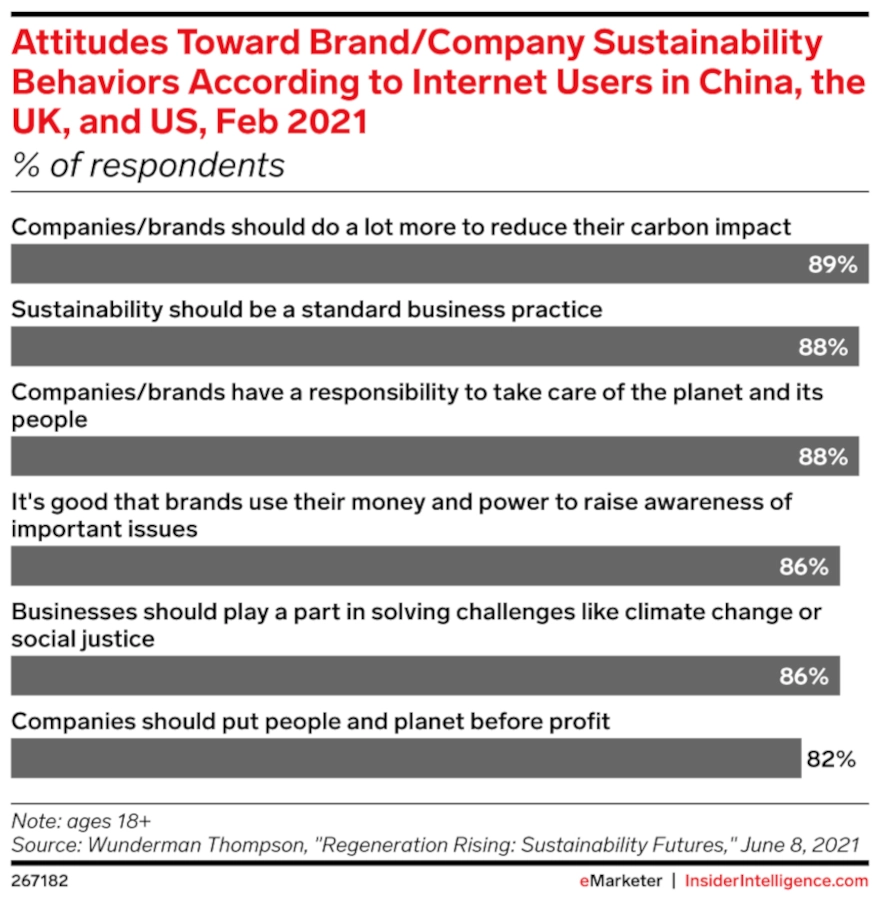

Picture by way of eMarketer
Sustainability stays a key concern for customers. Roughly 70% of customers contemplate sustainability when making vogue purchases . This shift in client habits has contributed to the expansion of the resale market. In 2023, the secondhand and resale attire market was valued at $197 billion, with platforms like Depop experiencing important consumer engagement.
For manufacturers, this development opens up new enterprise fashions and buyer engagement methods. Some are partnering with resale platforms; others are launching in-house applications that permit clients to commerce in gently used items for retailer credit score. Both method, resale is now not a distinct segment—it’s a pillar of contemporary vogue consumption, particularly amongst Gen Z.
The creator economic system’s increasing affect
The creator economic system has grow to be a major drive in vogue advertising and marketing. As of 2025, the worldwide creator economic system is valued at roughly $224.2 billion, with projections indicating it might surpass $2.71 trillion by 2037 . This progress displays the growing reliance on content material creators to drive model consciousness and gross sales.Notably, creator-driven content material has a considerable impression on buying selections. Within the U.S., almost half (49.5%) of social customers have made purchases influenced by content material from creators, influencers, or celebrities.
A customized buyer journey
One-size-fits-all advertising and marketing is formally out. As we speak’s customers count on personalised experiences that replicate their distinctive tastes, behaviors, and buy histories. From custom-fit product suggestions to creator-curated collections, personalization is shaping the way in which vogue manufacturers join with customers.
AI-driven instruments and information from creator-led campaigns permit manufacturers to tailor every little thing—from electronic mail content material to product touchdown pages—to particular person preferences. Influencer and creator partnerships play a significant position on this evolution. When customers uncover merchandise by way of a creator they comply with and belief, the expertise feels extra private—and results in stronger model loyalty.
How vogue trade manufacturers leverage influencer advertising and marketing
Attire and equipment have the most important social media footprint within the U.S., accounting for greater than 53% of all posts and put up engagements throughout Fb, Instagram, and Twitter. The second-most is client electronics, with 11.5%. Consequently, greater than 50% of Gen Z and Millennials agree social networks are important data sources for procuring selections.
Social media creators are the driving drive behind these on-line procuring selections. Influencers have grow to be among the most outstanding trendsetters within the vogue trade and encourage audiences by showcasing the newest types and product releases.
Essentially the most profitable manufacturers collaborate with creators who match their model id and genuinely love their merchandise. Influencers who test these bins put manufacturers in a novel place to companion somebody who can concurrently act as a mannequin, storyteller, and model ambassador, all whereas giving trustworthy product endorsements to an engaged target market.
Trend manufacturers with profitable influencer advertising and marketing campaigns
SKIMS
SKIMS, the shapewear and attire model based by Kim Kardashian, is a masterclass in balancing macro and micro influencer methods. Whereas superstar campaigns create instantaneous buzz, SKIMS additionally leverages a military of creators and clients to construct social proof at scale.The model ceaselessly sends PR packages to a variety of creators—from vogue editors to on a regular basis TikTokers—encouraging unboxings, try-ons, and styling suggestions. This strategy has helped SKIMS dominate throughout platforms like Instagram and TikTok.
Aritzia
Aritzia, the Canadian vogue retailer identified for its elevated fundamentals, has discovered main success by collaborating with life-style and fashion-forward micro influencers on platforms like Instagram and TikTok. As an alternative of flashy paid adverts, Aritzia focuses on organic-feeling content material—assume “day within the life” vlogs, outfit-of-the-day posts, and seasonal styling hauls.The model’s Tremendous Puff jacket grew to become a viral staple because of TikTok creators displaying how they styled it in on a regular basis life. By leaning into genuine, creator-led storytelling, Aritzia has stayed top-of-mind with Gen Z and millennial customers.
ASOS
ASOS is a web based clothes market that includes greater than 850 manufacturers. A number of the model’s most profitable partnerships are with younger, vibrant YouTube influencers who showcase merchandise by way of “unboxing” movies. Creators add an affiliate hyperlink to every product featured within the video from which they obtain a portion of income from every buy. ASOS was additionally one of many first manufacturers to make use of its personal in-house influencer workforce. The creators, generally known as ASOS Insiders, signal on with the model for long-term collaborations and produce content material completely for ASOS from a branded Instagram account.
Gucci
Gucci is one vogue model that has at all times been on the chopping fringe of the style trade. Recently, it has totally centered its consideration on the Gen Z demographic by way of collaborations with Okay-pop artists, streetwear designers, and influencers.However certainly one of Gucci’s extra modern campaigns invited creators to brazenly poke enjoyable on the model on-line. The #guccimodelchallenge inspired creators to compete for the “greatest” Gucci mannequin look. The marketing campaign went viral and created tons of user-generated content material for the model, the perfect of which Gucci featured on its official TikTok channel.
Levi’s
Levi’s has at all times had success as an early adopter of recent developments and advertising and marketing methods. The model’s “Purchase Higher, Put on Longer” marketing campaign enlisted the assist of high Gen Z influencers like rapper Jaden Smith and Manchester United star Marcus Rashford who inspired followers to put on Levi’s denim longer to assist counteract the environmental impacts of consumerism and manufacturing. Through the COVID-19 pandemic, Levi’s was one of many first manufacturers to experiment with TikTok’s “Store Now” button that permits customers to buy gadgets by way of hyperlinks posted on the platform. Levi’s recruited fashionable TikTok creators to design denims with its Future End 3D denim customization know-how, which their audiences might buy on Levi’s web site. Levi’s reported that the watch time for these movies was twice so long as the platform common.
DSW
DSW noticed advantages from TikTok influencer advertising and marketing shortly after launching its first marketing campaign on the platform. For them, TikTok is a “strive house” the place the model can experiment with new developments and ways that may not at all times work on among the older platforms.
“Each different social channel we’re on, we’ve got very particular KPIs, and we’ve got sure metrics that we have to hit. However TikTok is that this free house. One in every of our graphic designers was like, ‘I really like TikTok.’ And we had been like, ‘You’re employed.’ She’s been working with our workforce to provide you with new issues to do, new stuff to strive, issues which can be trending.”
— Maria Wollenburg, DSW supervisor of social media and content material
DSW’s #TooManyShoes TikTok marketing campaign generated 1.7 billion views in a matter of days. Spearheaded by a handful of fashionable TikTok influencers, the hashtag challenged DSW followers to indicate off their shoe closets for an opportunity to win a $500 present card.
Marc Jacobs
In 2014, Marc Jacobs put out a casting name for aspiring fashions on Instagram and Twitter. He invited customers to submit movies underneath the hashtag #CastMeMarc, and the model chosen its favorites to look on the Marc by Marc Jacobs AW14 marketing campaign. The tactic produced greater than 70,000 items of user-generated content material and gave 9 model superfans their likelihood to look in a large advert marketing campaign.
The model additionally ran a five-day influencer takeover for its Daisy Love Marc Jacobs perfume launch in 2018. The takeover occurred on the Santa Monica Pier—one of many extra “Instagrammable” places on the West Coast. Forty worldwide influencers hosted the occasion, which featured gentle exhibits, video games, a branded ice cream cart, and complimentary product vouchers to rejoice the launch.
Key takeaway: The style trade and the creator economic system proceed to develop—collectively.
Partnering with influencers helps vogue manufacturers preserve their finger on the trade pulse and keep high of thoughts with customers of their goal market. The manufacturers that stay modern of their advertising and marketing strategy and permit influencers the liberty they should produce high-performing content material would be the ones who see the perfect ROI and drive probably the most conversions from their campaigns.



